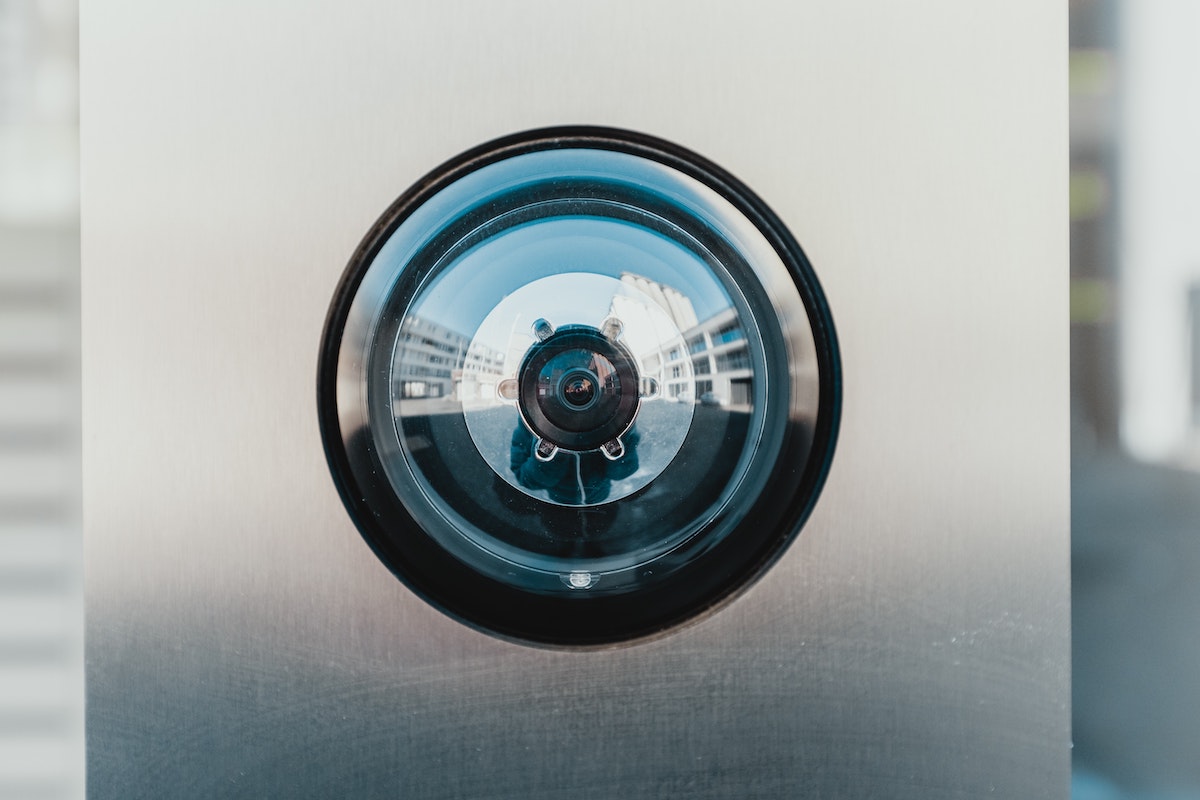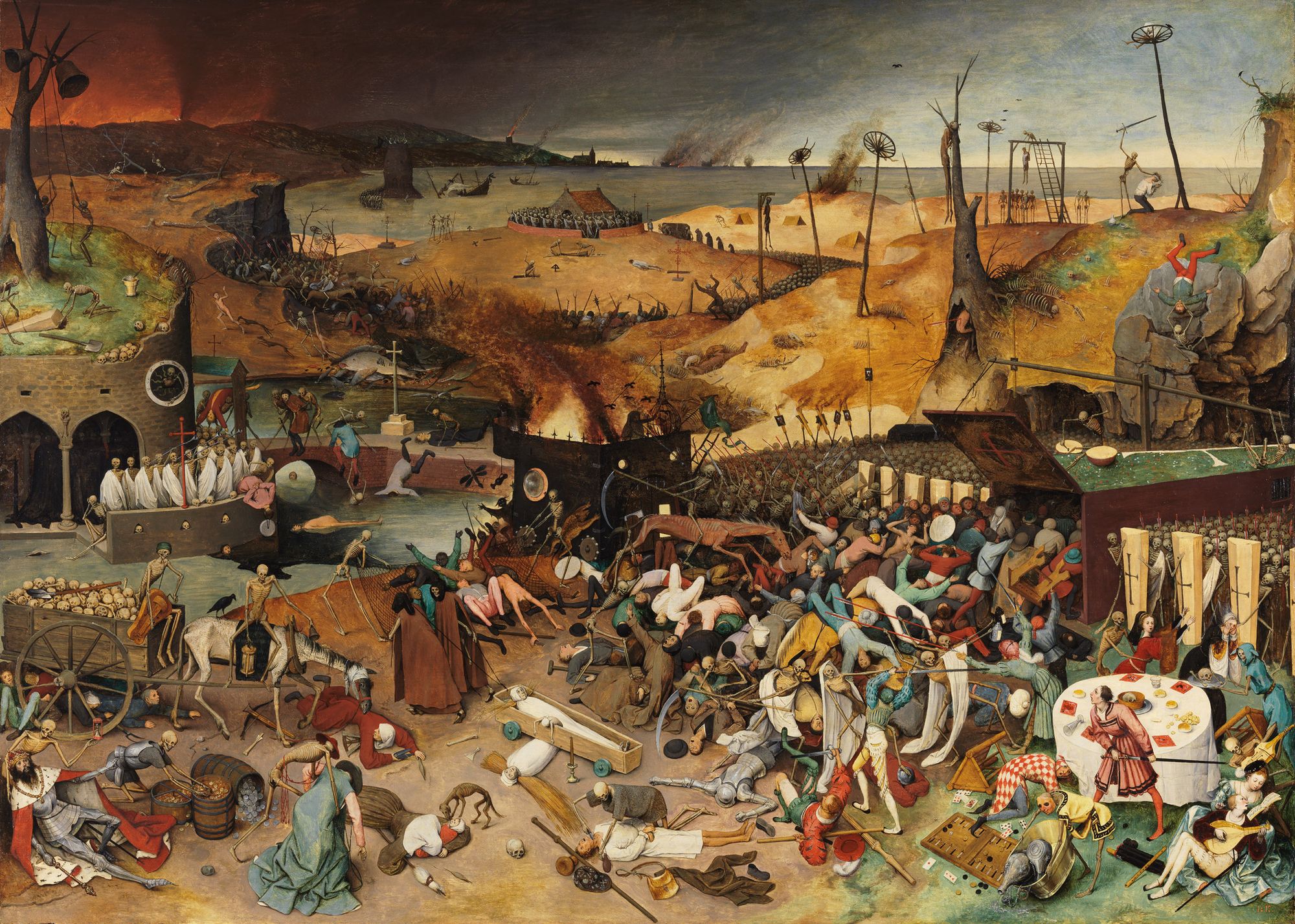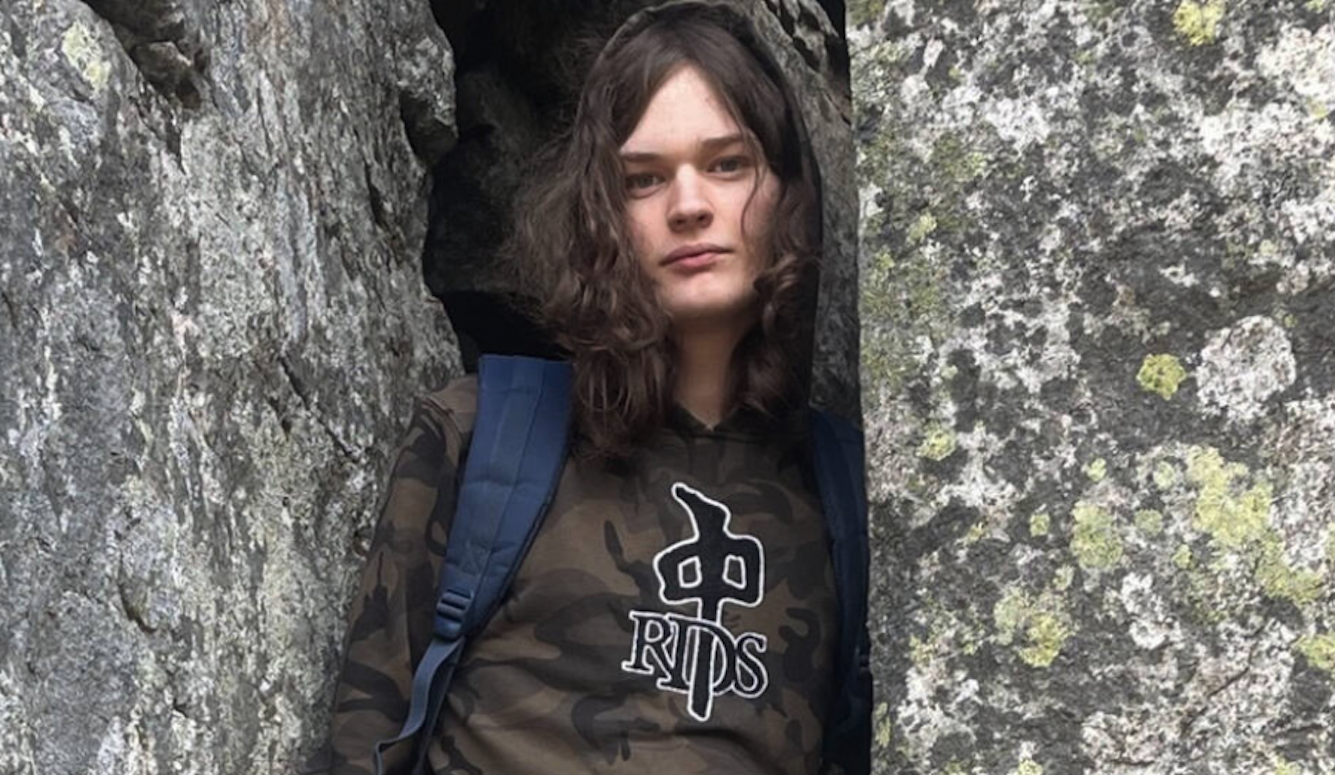COVID-19
Is State Protection a Threat to Liberal Democracy?
Protection at the cost of a planned economy and a surveillance state would be no protection at all.

The world is awash with predictions about the impact of COVID-19 on life in the liberal democracies—from more online shopping to less globalisation, from higher taxing governments to more working from home. But most analyses compare 2020 with 2019 and examine the immediate changes wrought by the pandemic alone. Long-term, COVID-19’s impact may turn out to be considerably greater.
To fully appreciate the potential consequences of this pandemic we need to examine it in the wider context of the last two decades. It must be seen as part of a series of developments over that period that, collectively, could transform liberal democracy more dramatically than is currently predicted. Those developments have driven the physical and economic insecurity of citizens to levels never previously experienced in the modern liberal democratic state. COVID-19 may be a tipping point for insecurity. Self-preservation may be the new priority that triggers a radical transformation of what the citizens of liberal democracies demand from the state and what the state delivers. Taken too far, that transformation of the citizen/state relationship could spell the end of liberal democracy.
Peak liberal democracy
In 1651, Thomas Hobbes described life in a pure state of nature as “solitary, poor, nasty, brutish, and short.” He argued that in return for protection the people must surrender their rights to an absolute sovereign power. This “social contract” is the only way to achieve political order and for the individual to enjoy peace and security. Modern liberal democracy developed over the next 350 years, the result of a continuous struggle between the masses and their rulers. That struggle saw the slow transfer of power and rights from the latter to the former through the vehicle of the state. The result was a winning amalgam of the nation state (which provided personal safety), the liberal state (a wide range of rights and freedoms), the democratic state (political power that is accountable to the populace), and the welfare state (a raft of financial benefits and social services).
By the year 2000, life for most citizens in the world’s liberal democracies was anything but “solitary, poor, nasty, brutish, and short.” They enjoyed safe, secure lives and were healthier and wealthier than both their forebears and the citizens of all other forms of state. As it had been for millennia, the world was full of war and famine, disease and terror, but these problems seldom had any impact on the lives of the fortunate citizens of the liberal democracies. In 2000, it looked as though Francis Fukuyama might have been right when he argued that liberal democracy was the “the end point of mankind’s ideological evolution.”
The rise of insecurity
Unfortunately, things began to change around the turn of the century. The first major development was the arrival on American soil of Islamist terrorism on September 11th, 2001. Over the previous decades, liberal democracies had experienced domestic terrorism and isolated cases of international terrorism. But the scale of the 9/11 atrocities, and the intention of its architects to spread fear of another devastating attack anywhere and at any time, heralded a new era. Terrorism had two serious consequences for liberal democracies. First, it elicited heightened and widespread concern for personal safety, and a sense of physical insecurity. Second, it led governments to introduce far-reaching anti-terror laws in areas like surveillance, search, and detention, many of which contravened longstanding civil liberties. Significantly, most citizens appeared happy to concede personal rights in return for more security.
The second major development was the Great Recession of 2007–09. Until the COVID-19 induced economic collapse, this was the most severe financial crisis since the Great Depression of the 1930s. In many liberal democracies, it resulted in GDP contraction, increased unemployment, falling house prices, bank failures, and government debt crises. Particularly in Europe, the latter often led to fiscal austerity, which in turn meant further financial hardship. Like terrorism, the Great Recession had two serious consequences. First, the realisation that the financial system is volatile and that economic stability is precarious, created an unprecedented sense of economic insecurity. Second, it demonstrated the power of state intervention. Policymakers acted quickly to support the financial system and stimulate economic activity. As with terrorism, most citizens of liberal democracies welcomed government intervention when it was directed at protecting them.
The third major development was global warming. According to NASA, “19 of the 20 warmest years all have occurred since 2001.” While this has not caused a single catastrophic event comparable to 9/11 or the Great Recession, it has resulted in more frequent and more extreme fires, droughts, and storms. The consequences of climate change for liberal democracies are still emerging. It is accepted as a “major threat” by a majority of the population in most countries. It may not yet be seen by many as an immediate threat to their personal safety, but events like the 2018 Californian wildfires and the recent bushfires in Australia have demonstrated the dangers ahead. There is rising anxiety about climate change. Younger people are the group most affected. Greta Thunberg and Extinction Rebellion reflect the growing sense of insecurity and increase in demands for government action. The government response to those demands has varied widely in different liberal democracies—there have been extensive interventions in some which include the imposition of carbon taxes, offers of renewable energy subsidies, and moves to close down coal mines and coal burning power plants.
Between 2000 and 2019 life changed significantly for the citizens of the world’s liberal democracies. To varying degrees, terrorism, economic shock, and global warming introduced new and substantial insecurity into lives of relative safety and certainty. The inevitable response was to demand state protection, and the understandable reaction of governments was to provide it. That meant greater government intervention in the economy and an expansion of the powers of the security state.
Plague in the 21st century
As 2019 drew to a close, the first reports appeared of a cluster of pneumonia cases in Wuhan, China. Less than six months on and the world has changed forever. The novel coronavirus has produced two disasters—the worst health crisis since the Spanish flu pandemic of 1918–19 and the most severe economic downturn since the Great Depression. It is still too early to know when and how the health and economic crises will end and what the final toll will be. Already the disease itself has caused illness and death on a massive scale; the domestic lockdowns have caused untold mental health problems, deferred medical treatment, domestic violence, and disrupted education; and the economic shutdown has caused vast unemployment, lost income, stunted careers, bankruptcies, and business failures.
Health insecurity has skyrocketed. People across the liberal democratic world are worried about their own health and that of their family and friends. Even in those countries that seem to have the virus under control, there is fear of second and third waves of infection. Citizens have expected governments to protect them from the disease. Governments have responded by exercising extraordinary powers of control and restraint. They have closed national borders, instigated weeks-long lockdowns, and introduced rules on everything from social distancing and working at home to funeral attendance and the wearing of face masks. Some are employing or preparing to employ tracing apps to monitor the movement of their citizens. Significantly, most citizens have complied with the controls imposed to protect their health.
Economic insecurity is at record levels with many people struggling financially and facing an uncertain future. Public expectations of state economic protection have been high. The calls for government intervention are everywhere. In 1986, Ronald Reagan said that the nine most terrifying words in the English language were “I’m from the government and I’m here to help.” In 2020, these are the words that everyone wants to hear. As journalist George Monbiot put it, “it may not be true that there were no atheists in the trenches, but there are no neoliberals in a pandemic.” Ideology is reemerging only now as countries debate how quickly to move out of lockdown. A recent survey across six liberal democracies shows that people overwhelmingly look to the state to address the economic emergency. Sociologist John Falzon expresses the view of many: “we have a right to expect government to do what markets cannot, namely, achieve collectively what we cannot achieve alone: social and economic protection for all of us.”
Governments and central banks have intervened to a remarkable extent to support individuals and businesses. They have adopted a range of extreme measures including paying businesses to retain their employees, purchasing government and corporate bonds, bailing out companies, increasing social welfare payments, providing funding to the banks, and even paying “helicopter money” direct to citizens. Governments are spending staggering sums and incurring frightening debts. Populations are being scarred and traumatised by these two crises. According to Census Bureau data in May reviewed by the Washington Post, “a third of Americans are showing signs of clinical anxiety or depression… the most definitive and alarming sign yet of the psychological toll exacted by the coronavirus pandemic.” That was before anyone had heard of George Floyd.
As if a plague of death and illness and an economic collapse were not enough, COVID-19 is also contributing to a serious deterioration in Sino-American relations that may yet herald a new Cold War.

A post-postmaterial future?
Surveying the wreckage of 2020, things look very different to 2000. Citizens in the world’s liberal democracies now face an array of new or vastly expanded threats—terrorism, climate change, economic volatility, pandemics, and geopolitical instability. This is not just business as usual, the standard ebb and flow of historical events. It represents a level of citizen insecurity not previously experienced in the modern liberal democracies. And these are just the major developments over the last 20 years. Other emerging threats include refugees flows, artificial intelligence/automation in the workplace, cybercrime, and nuclear proliferation. (The first two can have benefits but it would be a mistake not to recognise that they are perceived as threats by many people.)
The key point is that all these developments impact the physical and economic security of citizens. They represent material threats. In his 1977 book The Silent Revolution, political scientist Ronald Inglehart looked at the concept of “postmaterialism.” He argued that, as a result of rising affluence, the values of citizens in Western countries “have been shifting from an overwhelming emphasis on material well-being and physical security toward greater emphasis on the quality of life.” Non-material values such as self-expression, autonomy, and gender equality became more important as people took physical and economic security for granted.
Looking back, we can now see that 2000 represented peak postmaterialism in the liberal democratic world. In 2020, physical and economic security are no longer a given. They are being reprioritised by citizens increasingly concerned with self-preservation. We may be entering a new era of “post-postmaterialism.” If the development of liberal democracy over the centuries has been a story of citizens making demands on the state—for personal safety, freedom, political power, welfare—what does our new age of insecurity mean for the next chapter? What will citizens want more of from their governments going forward? The obvious answer is protection—protection from terrorists, pandemics, extreme climatic events, economic hardship, and war. And today’s high maintenance citizens, products of a culture of market consumerism, will not be backward in demanding that protection.
The pressure on governments may be compounded by specific characteristics of the old and the young. The former constitute a growing proportion of the population and they are particularly susceptible to physical threats as shown by the current pandemic. They are also keen voters and are likely to bestow electoral support on parties that offer them protection and security. The young represent a different set of potential problems. According to social psychologist Jonathan Haidt and journalist Greg Lukianoff, today’s young have been coddled by a culture of “safetyism” that has attempted to shelter them from adversity. The danger is that this has reduced their resilience. One group may be especially troubled—those who left school or finished university during the Great Recession or the coronavirus pandemic. A disproportionate number will suffer the long-term negative effects of unemployment. Many of the young, like the old, will be keen voters for state provided protection.
State protection comes at a price
Surveilling citizens can help in the fight against terrorists, but it reduces privacy. Monitoring citizens facilitates the control of disease, but it impinges on freedom. Taxing citizens funds relief from economic hardship, but it appropriates private property. So, here is the dilemma: In order to provide physical and economic protection to its citizens, a liberal democratic state must transgress core liberal tenets like privacy, freedom, and respect for private property. This is not a new problem. As part of our complex social contract, we recognise that there are no absolutes. Trade-offs are required. Restrictions on freedoms are accepted to prevent one person harming another. Taxation is accepted to fund an appropriate level of government services and redistribution. Democratic politics is the process by which these trade-offs are negotiated. They have evolved over time.
The crucial question is whether or not the dramatic change in the nature and level of threats over the last 20 years, capped off by the shock of the dual COVID-19 crises, will trigger a revolutionary shift in those trade-offs and a transformation of the citizen/state relationship. It is too early to tell but there are certainly signs that many citizens may be prepared to surrender significant political and economic freedoms in return for greater physical and economic security. Philosopher John Gray argues that in the current emergency “being shielded from danger has trumped freedom from interference by government” and that “those who believe personal autonomy is the innermost human need betray an ignorance of psychology, not least their own. For practically everyone, security and belonging are as important, often more so.” If Gray is right, increasing demand for protection from physical and economic insecurity may lead to a weakening of the “liberal” in liberal democracy.
Of course, the rights and freedoms we associate with liberalism are themselves a form of protection—against other citizens and, importantly, against the state itself. To the extent that any of these are surrendered for greater physical and economic protection, it is a case of trading one form of protection for another. A rational citizen would do that after appropriate consideration of the relative threats to their security. If the risk of dying in a pandemic or terrorist attack is assessed to be greater than the risk of being damaged by the state, protection against the latter might be sacrificed to secure protection against the former. The scales in that assessment have changed over the last two decades—a period of relatively benign governments and domestic peace but rising threats from external sources.
But historian Yuval Noah Harari offers a sobering example of where technology might take state protection. He foresees “under-the-skin surveillance” that would enable the state not just to track an individual’s location but to monitor their reaction to news. Algorithms could predict the likelihood of an individual committing terrorism or breaching pandemic restrictions. The state might then take appropriate action against potential offenders. History and the experts tell us that once the state assumes surveillance powers, they can be difficult to reverse.
The calls on the state for greater economic protection are at least as strong as those for greater physical protection. This is hardly surprising given two major recessions within just a dozen years. These calls take many forms and are often ideologically neutral—from higher wages and more generous welfare benefits to tax concessions and more industry subsidies. The price of all this economic protection receives much less attention. The apparent ease with which governments have taken on colossal debt to fight the latest downturn has encouraged many to think that the state’s capacity to borrow is virtually limitless and practically costless. Philip Stephens, journalist and director of the editorial board of the Financial Times, perfectly captures the spirit of the times:
To watch governments throw trillions of dollars into the fight to prevent economic collapse is to appreciate just how absurd was the preoccupation of recent decades with balanced budgets, public deficits, and debt-to-GDP ratios.
Capitalism clearly remains the best system for ensuring the efficient allocation of resources, but the last 20 years have seen our current version of it stumble badly. The Great Recession revealed many weaknesses—dangerous volatility, speculative derivatives markets, and institutions “too big to fail.” Now the coronavirus pandemic has revealed many more—supply chain fragility, consequential inequality, and the precarious nature of the gig economy. This recent history will make it difficult for states to resist calls for ever-greater regulation, higher taxation, trade protectionism, and government spending. Change is needed, but liberal democratic states should be wary of going too far down that path in order to meet public demands for economic protection.
Be careful what you wish for
Social commentator David Brooks argues that “the plague today is an invisible monster, but it gives birth to a better world.” Let’s hope he’s right. But we need to recognise that this is a moment of danger for liberal democracy. Its citizens have experienced growing physical and economic threats over the last two decades. This has made many of them fearful and insecure. They want more state protection, and they might get it from politicians who want their votes. The risk is that doing so would eliminate some of the precious rights and freedoms that made liberal democracy “the end point of mankind’s ideological evolution” in the first place. Protection at the cost of a planned economy and a surveillance state would be no protection at all.






